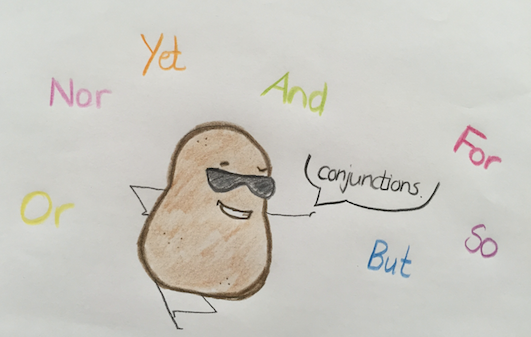Describes one of the ways in which sentences and/or utterances are linked together. Cohesion or endophoric connections have their manifistation in the sentence/utterance itself.
E.g.: Susan got pregnant and she married.
Here, the pronoun she refers to Susan, which is a connection that contributes to cohesion.
Describes one of the ways in which sentences or utterances are linked together. Coherence or exophoric connections are based on knowledge or information outside of the sentence/utterance.
E.g.: Susan got pregnant and she married.
Here, it is possible to interpret, that Susan probably got married because of her pregnancy.
Connectors play an important role in creating cohesion in our units of speech or writing. One form of connectors are known as coordinating conjunctions. Their function is to connect two or more sentences, main clauses, words, or other parts of equally important speech units. There are seven coordinating conjunctions, as seen on the picture below.

Write down your words, and think about which one is the easiest for you to remember.
https://www.tutory.de/entdecken/dokument/3cc12d30
- There can be more than one correct option for each sentence. 3 options are given after each sentence as a help.
Example:
I hate to waist a drop of gas. Gas is so expensive now a days. (for, yet, so)
I hate to waist a drop of gas, for gas is so expensive now a days.
1 Charlotte enjoys playing football. Charlotte finds tennis extremely boring. (but, and, nor)
2 Would you like ham in your sandwich? Would you like beef in your sandwich? (and, nor, or)
3 I am allergic to dogs. I have three dogs. (or, yet, so)
1. I wanted to go to the beach, Tim thought it was too cold.
2: Julia is a vegetarian, she does not eat any meat.
3: School is almost over I am thinking about taking a long vacation. Would you like to join me, do you need to work this summer?
4: The students did not enjoy all the lectures, did they enjoy the long texts they had to read the difficult exams.
Coordinating conjunctions connects two sentences, main clauses, or words that are equally important.
Remember to think about cohesion: what meaning is meant to be connected?
https://www.tutory.de/entdecken/dokument/3cc12d30


